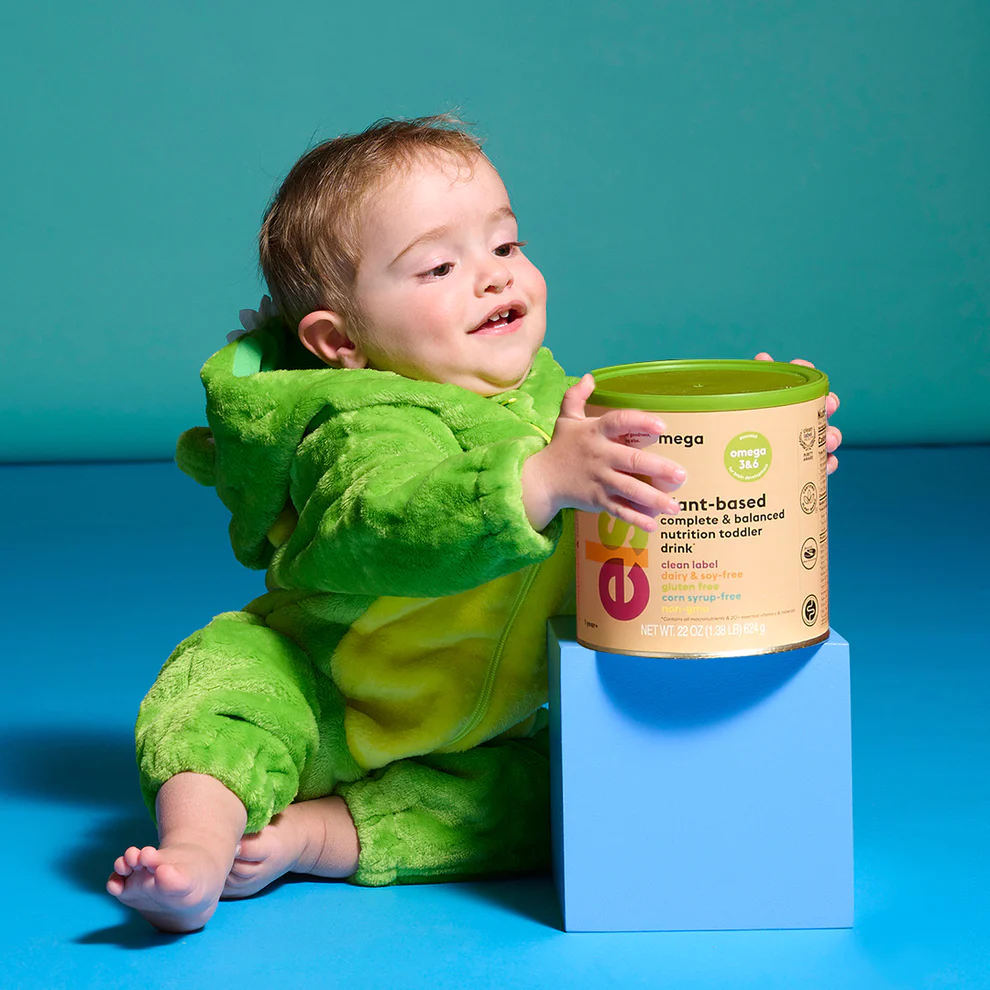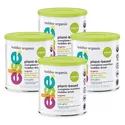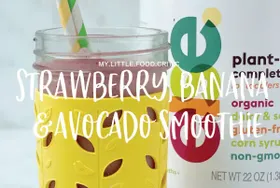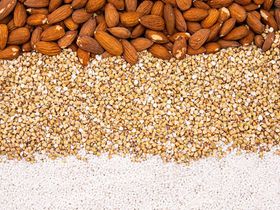How is Else Nutrition’s Plant-Based Formula Made?
Discover the difference of a formula backed by science and made from nature's finest ingredients
Updated September 26, 2024

Imagine a world where every parent can confidently feed their child, knowing they're providing the best possible nutrition. Else Nutrition has made that dream a reality.
Born from seven years of relentless innovation, Else Nutrition's Plant-Based Complete Nutrition for Toddlers is more than just a formula—it's a revolutionary approach to toddler nutrition that combines the power of natural ingredients with cutting-edge nutritional science.
» Support your baby's healthy growth and development with nourishing formula
The Foundation: Three Whole Plants
At the heart of Else Nutrition's Plant-Based Complete Nutrition for Toddlers lies a simple yet powerful combination of just three main ingredients: almonds, buckwheat, and tapioca.
This simplicity is no accident—it's a deliberate choice to create a clean-label product that parents can trust and understand. This starkly contrasts many traditional formulas that rely heavily on processed ingredients and additives.
Almonds: Nature's Nutritional Gem
Almonds are the primary protein source in Else Nutrition's formula, making up about 75% of the protein content. These nutrient-dense nuts bring more to the table than just protein, though. They're rich in:
- Biotin
- Vitamin E
- Copper
- Manganese
- Vitamin B2 (riboflavin)
- Phosphorus
- Magnesium
- Molybdenum
Almonds are also an excellent source of monounsaturated fats and have been shown to have anti-inflammatory properties. They also contain prebiotic fiber that can positively influence the intestinal microbiome, promoting gut health in young children. [1]
Unlike some plant proteins that can be difficult for young digestive systems to break down, almond proteins are easily absorbed, making them an excellent alternative to cow's milk whey or casein.
» Learn more about the benefits of almonds
Buckwheat: Not Just Another Grain
Buckwheat is a nutritional superstar in its own right, making up the remaining 25% of the protein content. Despite its name, buckwheat isn't related to wheat at all—it's actually a seed that's often used as a grain alternative. It brings several benefits to the formula:
- Complete amino acid profile (all eight essential amino acids)
- Gluten-free carbohydrates
- Rich in manganese, copper, magnesium, and phosphorus
- High in antioxidants
- Source of prebiotic fiber
Buckwheat also contributes to the formula's low allergenicity profile. As a gluten-free grain, it's suitable for children with gluten sensitivities or celiac disease, making Else Nutrition's formula a versatile option for families with various dietary restrictions. [2]
» Explore tips and tricks for childhood nutrition
Tapioca: The Binding Element
Tapioca maltodextrin, a natural carbohydrate derived from cassava root, offers a gentle and easily digestible energy source. It's flavorless and odorless, making it an ideal ingredient. Processed using only water and natural enzymes, tapioca aligns with Else Nutrition's commitment to clean, minimally processed ingredients.
Unlike many formulas that rely on corn syrup solids or refined sugars, tapioca provides a steady release of energy without the potential drawbacks associated with high-fructose ingredients. [3]
» Discover how nutrition influences your child's immunity
The 3-Step Process: Keeping It Clean and Whole
Else Nutrition's production process is designed to maintain the integrity of the whole food ingredients while ensuring the final product meets all necessary nutritional standards.
1. Gentle Processing
Unlike traditional formulas that often involve chemical extraction or extensive processing, Else Nutrition's Plant-Based Complete Nutrition for Toddlers transforms ingredients while preserving their nutritional value.
This means that the formula's protein, carbohydrates, and fats come directly from whole plants, along with their naturally occurring phytonutrients, fiber, vitamins, and minerals.
» Learn about the essential omega-3s and 6s for healthy growth
2. Standardization for Optimal Nutrition
After the main ingredients are prepared, they are blended and carefully standardized to ensure the correct proportions of carbohydrates, fats, proteins, vitamins, and minerals.
This guarantees that each serving provides consistent nutrition, which is crucial for young children whose growth and development rely on getting the right balance of nutrients.
» Discover the importance of fats in children's diets
3. Powder Extraction
The mixture is processed into a powdered form for packaging, making it easy to reconstitute with water. To meet the specific nutritional needs of growing kids, essential vitamins and minerals are added to the formula, ensuring it meets or exceeds nutritional standards set by regulatory bodies.
» Explore nutrition challenges and solutions for kids
What Sets Else Nutrition Apart?
Several vital factors distinguish Else Nutrition's plant-based formula from other products.
Clean Label Project Certified
Else Nutrition's commitment to purity is validated by its Clean Label Project certification. This nonprofit organization tests for over 400 contaminants, including heavy metals, plasticizers, and pesticides.
For parents, this certification assures that they're choosing a product independently verified to be free from a wide range of potential contaminants.
» Find the best cereals that are free from heavy metals
Minimal Ingredients
With over 92% of the products made of just three whole food ingredients, Else Nutrition boasts one of the most straightforward ingredient lists in the industry.
This transparency is rare in kids' nutrition, where long lists of additives and preservatives are common. There are no added external proteins, complex carbohydrate sources, or artificial flavors and colors.
» Learn why whole foods are so important for kids
Low Sugar Content
Else Nutrition's formula contains less than 2% added cane sugar, significantly less than many comparable products on the market. This aligns with the American Academy of Pediatrics (AAP) recommendation to avoid high-sugar toddler formulas.
The low sugar content is particularly noteworthy given the growing concern about excessive sugar intake in children's diets. Parents can contribute to better long-term health outcomes for their kids by providing a low-sugar alternative from an early age.
Allergen-Friendly
The formula is free from common allergens such as dairy, soy, gluten, egg, fish, and peanuts. This makes it an excellent option for children with food sensitivities or allergies, especially those who can't tolerate dairy or soy-based formulas.
Finding a nutritionally complete formula can be challenging for families dealing with multiple food allergies. Else Nutrition's plant-based formula fills this gap in the market, providing a safe and nutritious option for children with various dietary restrictions.
» Give your child the best lactose-free formula for sensitive tummies
Environmentally Conscious
Else Nutrition has a minimal carbon footprint and avoids many environmental concerns associated with dairy production. It's also free from hormones, pesticides, and antibiotics found in cow's milk-based formulas.
Parents can make a more eco-friendly choice without compromising on nutrition by choosing plant-based ingredients and sustainable production methods.
» Learn more about how Else Nutrition is committed to sustainability
Nutritionally Complete
Despite being plant-based, Else Nutrition's Plant-Based Complete Nutrition for Toddlers provides a complete nutritional profile suitable for toddlers aged 12–36 months. It offers all essential amino acids, a balanced mix of carbohydrates and fats, and over 20 essential vitamins and minerals.
Achieving nutritional completeness with plant-based ingredients is no small feat. Else Nutrition shows it's possible to meet children's dietary needs without relying on animal products, opening up new possibilities for plant-based infant and toddler nutrition.
» Understand the benefits of vitamin D and calcium for kids
Safety and Quality Assurance
Else Nutrition takes product safety very seriously. Their products are:
- Manufactured in facilities that follow FDA good manufacturing principles
- Certified with the Clean Label Purity Award
- Independently tested for over 400 contaminants, including pesticides and heavy metals
- Non-GMO certified
- Organic
These rigorous safety and quality standards ensure kids consume products that have been thoroughly vetted and tested.
» Explore healthy ways to supplement breastfeeding with formula
A Solution For Every Child
Else Nutrition has revolutionized the world of formula with its innovative plant-based solution. While it is an excellent option for vegan, vegetarian, and allergy-prone children, Else Nutrition Plant-Based Complete Nutrition for Toddlers appeal goes far beyond.
Its carefully crafted blend of organic ingredients, essential vitamins, and minerals offers a clean-label, nutrient-dense option that challenges traditional notions of what formula can be.
This empowers all parents to make informed choices about their children's nutrition regardless of their dietary philosophies. Else isn't just an alternative or a substitute—it's a nutritional powerhouse that can complement and enhance a varied diet for any child.
» Nourish your little one with the best. Choose Else Nutrition's Plant-Based Complete Nutrition for Toddlers
The content and advice provided in this article are for informational purposes only and are not a substitute for medical diagnosis, treatment, or advice for specific medical conditions.
Always consult a pediatrician to understand your child's needs. The article expresses the views of the article's editor.
References
[1] D. Barreca et al., “Almonds (Prunus dulcis Mill. D. A. Webb): a source of nutrients and Health-Promoting compounds,” Nutrients, vol. 12, no. 3, p. 672, Mar. 2020, doi: 10.3390/nu12030672. Available: https://www.ncbi.nlm.nih.gov/pmc/articles/PMC7146189/
[2] S. A. Sofi et al., “Nutritional and bioactive characteristics of buckwheat, and its potential for developing gluten‐free products: An updated overview,” Food Science & Nutrition, vol. 11, no. 5, pp. 2256–2276, Dec. 2022, doi: 10.1002/fsn3.3166. Available: https://www.ncbi.nlm.nih.gov/pmc/articles/PMC10171551/
[3] G. A. Bray, “Energy and fructose from beverages sweetened with sugar or High-Fructose corn syrup pose a health risk for some people,” Advances in Nutrition, vol. 4, no. 2, pp. 220–225, Mar. 2013, doi: 10.3945/an.112.002816. Available: https://www.ncbi.nlm.nih.gov/pmc/articles/PMC3649102/










